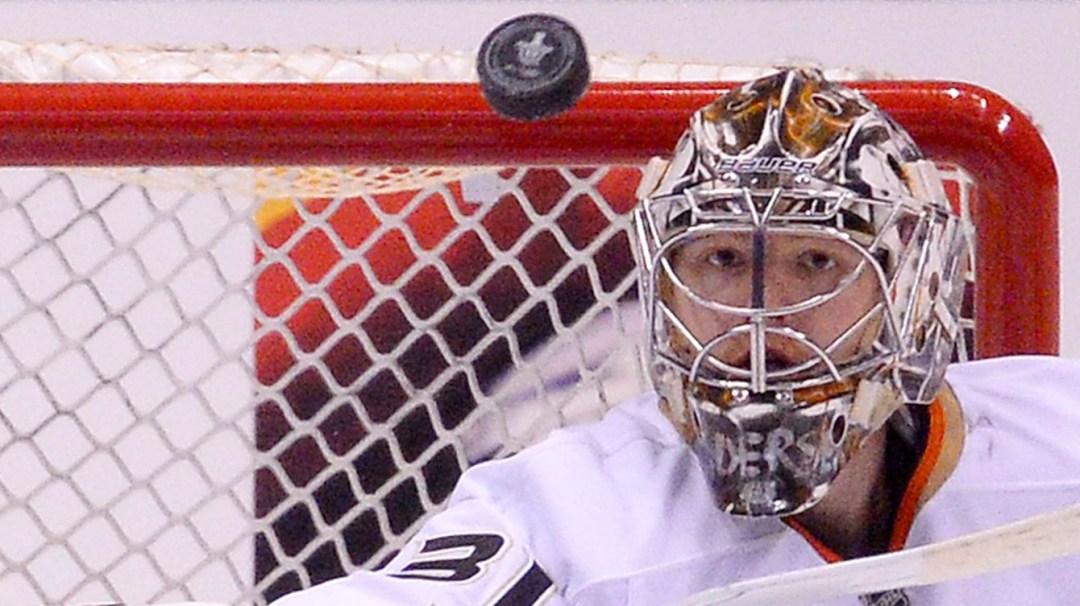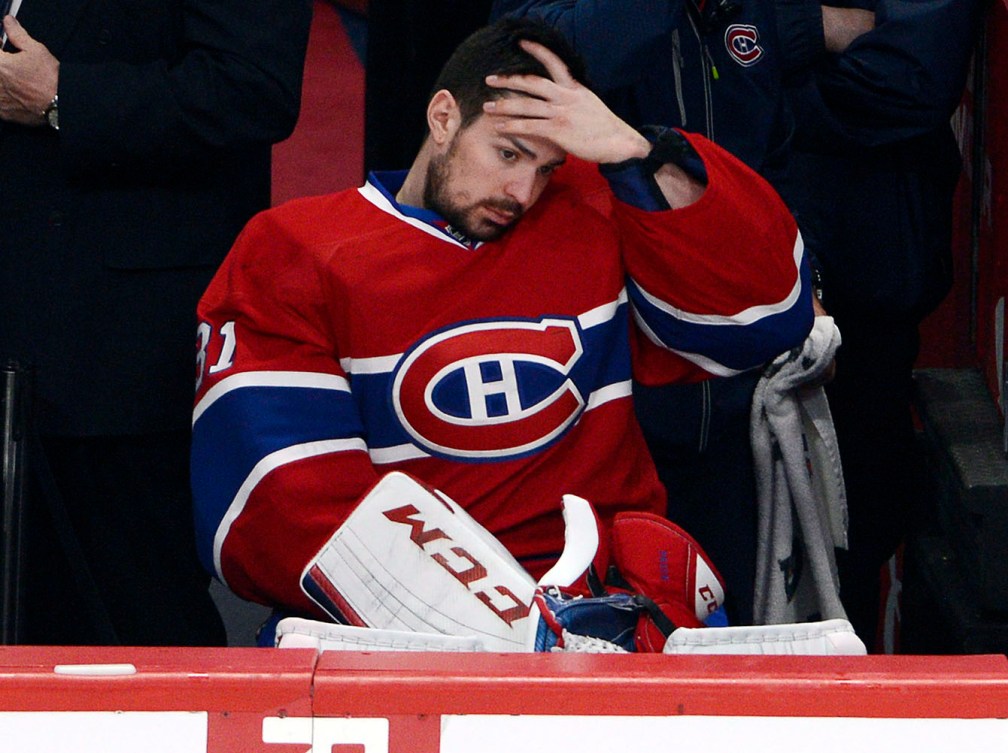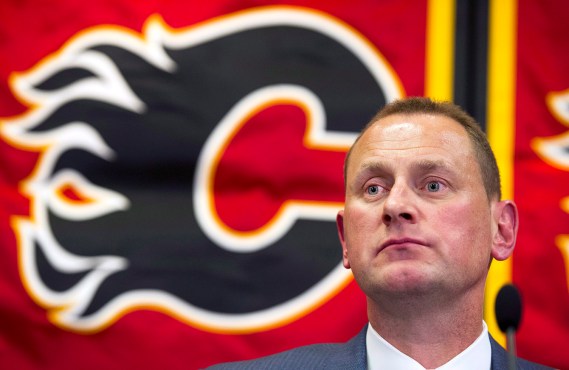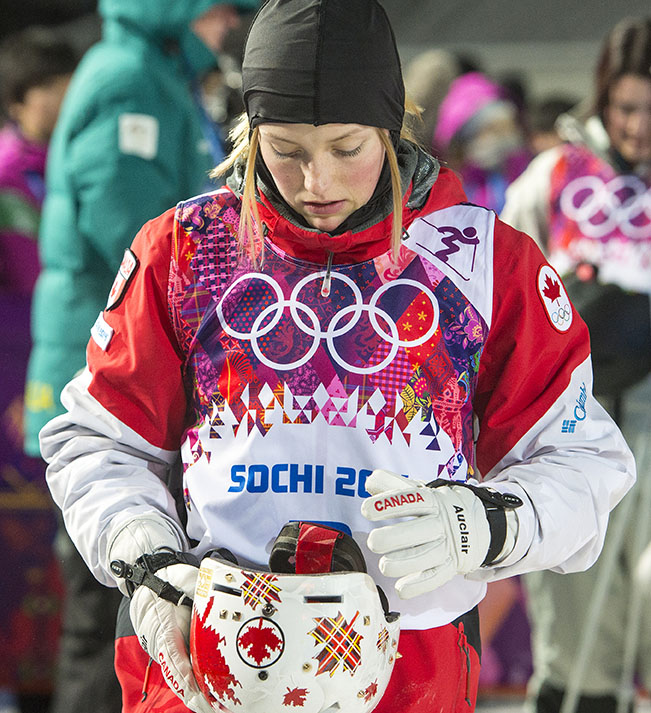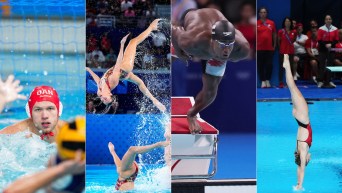Mental performance top of mind at NHL Scouting Combine
The grittiest moments of an NHL playoff game go beyond laying down in the path of a blistering slapshot or shoveling in a rebound.
Great hockey performance also happens on the bench. The player’s mind, once ignored by the sport, is now a top consideration. And hockey is catching up quick.
Calgary Flames general manager Brad Treliving takes a break from a day of interviews at the NHL Scouting Combine. He and his staff spent part of the day assessing two goaltenders. They are trying to figure out exactly what these young men are made of, mentally.
“I think it’s at the forefront for each team. It’s something we pay a great deal of time and attention to,” says Treliving who lists some of the character traits his group is looking to measure. Coachability, work ethic, response to success or failure, drive. Each trait forms the basis of excellent mental performance, which is critical in the Stanley Cup Playoffs. “We do have some tools through sport psychology, through certain questionnaires, certain testing we feel gives us a clear picture. We’re constantly evolving, I say we’re closing the gap,” he says.
It’s no secret why of the six days at the NHL Scouting Combine, five are devoted to 1-on-1 player interviews and one is left for fitness testing. “The mental aspect of the sport is 90 percent of it,” says Treliving. “Physical deficiencies can be addressed,” but he indicates mental skills can’t be so easily tweaked.
Treliving admits hockey is catching up when it comes to the emphasis placed on what is under the helmet. “Mental performance and mental capacity are things that in recent years we’re trying to get a better handle on. It would be ignorant for me to say we 100% without a flaw have a way of predicting the answers to all the questions we have when evaluating the mental side of the game. But we do feel we can make decisions based on the information we ascertain,” he comments.
For hockey, it’s not a discovery as much as it is an evolution. The sport has always valued the hallmarks of character and has more recently translated these into specific mental skills using science and professionals.
Dr. Matt Brown is a sport psychologist who is now working with Hockey Canada’s World Junior and U-18 teams. He also guides Canadian Olympians. “The truth is by the time I get athletes at the U-18 level the majority still haven’t had a lot of exposure to the idea. It’s a fairly rudimentary skill set that we try to that we try and teach them,” he says.
But Dr. Brown commends young hockey players, “They’re so motivated to be the best they can be they’re absolute sponges.”
17-year-old Jake Virtanen works with Dr. Brown. He is sixth among North American skaters, and while he’ll sit out Saturday’s fitness testing because of recent shoulder surgery, he has been preparing to meet teams. “The mental part of the game has really come into play in the last couple years, I get taught quite a bit by our psychologist,” says Virtanen.
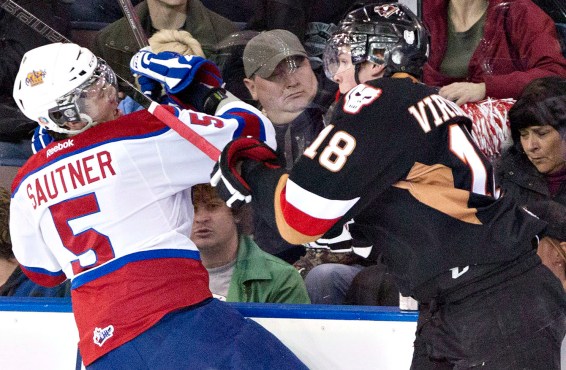
Yet Brown is skeptical about what NHL teams may do at the Scouting Combine to collect mental information. “Some teams will try to create some tension or adversity in the interview setting, I’m not convinced that they would generate the kind of data that they think they are,” he observes, “In the end I think you have a conversation with them and trust your instincts. The more organic the better. Get them talking about their background and their values.”
Brown also works with Olympic sports, which have a longer history trying to figure out the mental game. “Often those sports where the event itself lasts a minute or less so any amount of distraction or disruption in focus can be the difference between first and thirtieth,” he says.
When talent, good preparation and strong mental skills all show up on the biggest stage, the result can be legendary. In Sochi it was hard to ignore Drew Doughty’s sense of occasion or Carey Price’s ability to relax almost indifferently under heavy stress. On snow, both Justine Dufour-Lapointe and Alex Bilodeau delivered flawlessly in their evening finals. Wayne Halliwell works closely with both skiers, and has been preparing Olympians for over 30 years. “In freestyle skiing it’s four years for 25 seconds. At the Olympics what really lets all the talent and all the training come out is when they are enjoying it and they are free and excited to be there,” says Halliwell.
Interestingly, Halliwell focuses on a performance triangle that includes physical, mental and emotional aspects. He says when it really counts, the emotional side is where superstars need to be effective. And he suggests they can do this by not containing their emotions at all. “You can’t force yourself to enjoy it you have to let yourself enjoy it.”
Justine Dufour-Lapointe admitted playing Katy Perry’s ‘Roar’ to stay light on her skis. “For Alex it was ‘F— it, just go,” chuckles Halliwell.
Whatever the method, in any sport the objective is winning. In a league as competitive as the NHL, Treliving says any edge is welcomed which is why they work so hard on figuring out the mind. “The euphoria would be able to make almost spotless decisions by gathering excellent information,” he says.
Hockey is getting there and it’s not surprising Olympic methods are helping.

